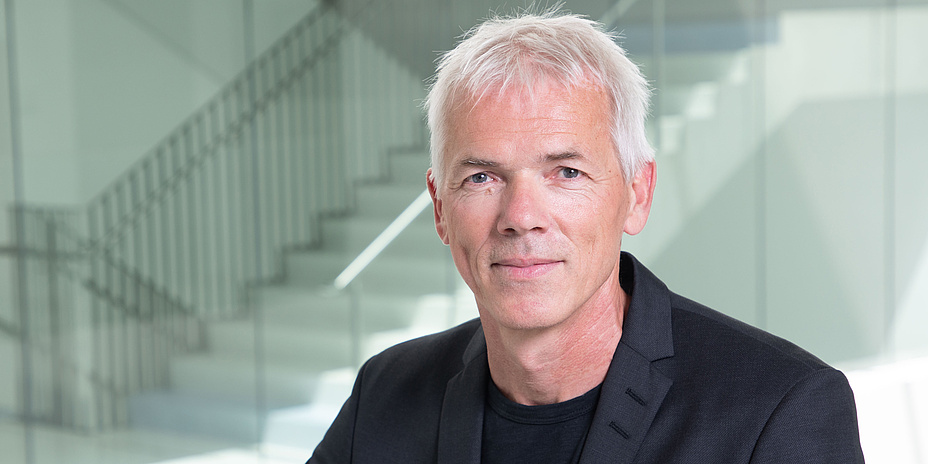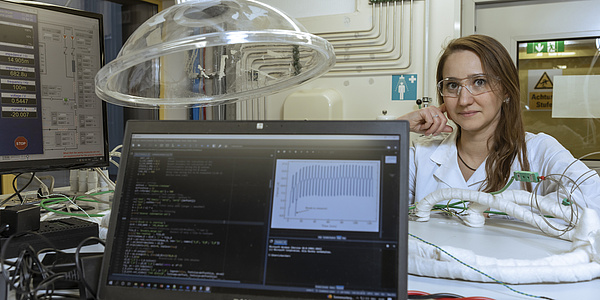Andreas Wimmer: "Import of green energies necessary"

News+Stories: If you were asked whether you could use hydrogen today to run a car or heat your home, what would your answer be?
Andreas Wimmer: I would say that neither of the two are currently reasonable fields of application for hydrogen. Although it is already possible today to add hydrogen to the natural gas network and thus use it for heating purposes, the use of pure hydrogen in the private sector is still in the distant future.
So what’s missing?
Wimmer: Building hydrogen infrastructure over a large area would be a huge challenge and will be some time coming. The question is, whether it makes sense in the short to medium term. Green Hydrogen should – due to the currently still limited availability – be used first where it is most effective. Overall it would be a matter of using hydrogen as sensibly and effectively as possible for the environment. Individual road traffic or domestic heating systems are not the first things that come to mind.
Rather?
Wimmer: Large industrial processes. For example, steel production. However, hydrogen will also play an essential role for seasonal energy storage.
This interview is part of the dossier "Green hydrogen - hype or hope?", in which experts from hydrogen and energy industry research at TU Graz answer the big, burning questions about the future of (green) hydrogen.
But can hydrogen offer us solutions to the current energy crisis?
Wimmer: Not exactly. Hydrogen and hydrogen-based fuels are just as much a means of transporting energy as electricity. One of the most important question for me besodes how the energy is transported, is where it comes from. In Europe, we have to be aware that we probably cannot produce enough renewable energy to meet all our needs. In the case of renewable energies we will have to continue importing energy from areas where solar and wind energy are available in surplus. But that doesn’t mean we shouldn’t act locally. The most important areas are saving energy, increasing efficiency and finding alternatives to fossil fuels.
What requirements are we talking about?
Wimmer: From mobility to transportation, industry, agriculture and households: The demand for renewable energy to replace fossil fuels will be enormous. As a comparison: In Australia, a plant is currently being built that will produce about 26 gigawatts of energy per year in the form of hydrogen and ammonia. This plant can only cover one per cent of the energy required in the marine sector. And the marine sector in turn only accounts for a good three per cent of total global energy demand.
Then why are you so sure that hydrogen is a good idea?
Wimmer: In terms of efficiency, electrical systems are still the preferred solution. But because of their very limited storage capacities, batteries are not suitable for many applications – for example ocean shipping. Chemical storage in hydrogen or hydrogen-based fuels, such as ammonia, makes much more sense. In this way, energy can be transported even over very long distances.
Why ammonia?
Wimmer: Fuel can be transported most effectively in liquid form. This is possible with hydrogen, but only if cooled to minus 253 Celsius. This is not an option – both in terms of energy and because of the evaporation losses this is not suitable for many applications. Ammonia, however, can be stored in liquid form at very low pressure and at ambient temperature. It is toxic, but the industry has been working with it in industrial processes for a long time and has a lot of experience.
What about conversion losses here?
Wimmer: Of course, there are always losses when one storage medium is converted into another – for example, electricity into hydrogen or hydrogen into ammonia. Generally speaking, there is always a trade-off between storage density and energy expenditure. This also means that synthetic diesel or gasoline-like fuels produced on the basis of hydrogen, which would allow the use of the existing refueling infrastructure, require the highest energy input. The task here is to find suitable compromises.
What is the biggest misunderstanding about hydrogen at the moment?
Wimmer: That neither electricity nor hydrogen and its derivatives can directly solve our fundamental energy problem. Although they will be essential for the transport and storage of energy, the key question will remain where the large amounts of energy necessary to generate them will come from. In particular, techno-economic considerations of the overall system - such as those we are conducting at the LEC - will be crucial.
This research area is anchored in the Field of Expertise “Sustainable Systems”, one of five strategic foci of TU Graz.
You can find more research news on Planet research. Monthly updates from the world of science at Graz University of Technology are available via the research newsletter TU Graz research monthly.
Kontakt
Andreas WIMMER
Ao.Univ.-Prof. Dipl.-Ing. Dr.techn.
Institut für Thermodynamik und nachhaltige Antriebssysteme
Inffeldgasse 19/II
8010 graz
Tel.: +43 316 873 30100
wimmer@tugraz.at




